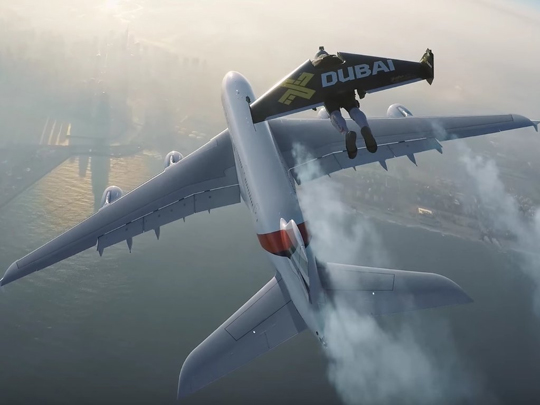
Dubai, Aug 2: The United Arab Emirates (UAE) announced on Saturday that it has started operations in the first of four reactors at the Barakah nuclear power station - the first nuclear power plant in the Arab world.
Emirates Nuclear Energy Corporation (ENEC), which is building and operating the plant with Korea Electric Power Corporation (KEPCO) said in a press release that its subsidiary Nawah Energy Company "has successfully started up Unit 1 of the Barakah Nuclear Energy Plant, located in the Al Dhafrah Region of Abu Dhabi".
That signals that Unit 1, which had fuel rods loaded in March, has achieved "criticality" - a sustained fission chain reaction.
"The start-up of Unit 1 marks the first time that the reactor safely produces heat, which is used to create steam, turning a turbine to generate electricity," said ENEC.
Barakah, which was originally scheduled to open in 2017, has been dogged by delays and is billions of dollars over budget. It has also raised myriad concerns among nuclear energy veterans who are concerned about the potential risks Barakah could visit upon the Arabian Peninsula, from an environmental catastrophe to a nuclear arms race.
Paul Dorfman, an honorary senior research fellow at the Energy Institute, University College London and founder and chair of the Nuclear Consulting Group, has criticised the Barakah reactors' "cheap and cheerful" design that he says cuts corners on safety.
Dorfman authored a report (PDF) last year detailing key safety features Barakah's reactors lack, such as a "core catcher" to literally stop the core of a reactor from breaching the containment building in the event of a meltdown. The reactors are also missing so-called Generation III Defence-In-Depth reinforcements to the containment building to shield against a radiological release resulting from a missile or fighter jet attack.
Both of these engineering features are standard on new reactors built in Europe, says Dorfman.
There have been at least 13 aerial attacks on nuclear facilities in the Middle East - more than any other region on earth.
The vulnerability of critical infrastructure in the Arabian Peninsula was further laid bare last year after Saudi Arabia's oil facilities at Abqaiq and Khurais were attacked by 18 drones and seven cruise missiles - an assault that temporarily knocked out more than half of the kingdom's oil production.
On Saturday, Dorfman reiterated his concern that there is no regional protocol in place to determine liability should an accident or incident at Barakah result in radioactive contamination spreading from the UAE to its neighbours.
"Given Barakah has started up, because of all the well-rehearsed nuclear safety and security problems, it may be critically important that the Gulf states collectively evolve a Nuclear Accident Liability Convention, so that if anything does go wrong, victim states may have some sort of redress," Dorfman told Al Jazeera.
The UAE has substantial oil and gas reserves, but it has made huge investments in developing alternative energy sources, including nuclear and solar.
Experts though have questioned why the UAE - which is bathed in sunlight and wind - has pushed ahead with nuclear energy - a far more expensive and riskier option than renewable energy sources.
When the UAE first announced Barakah in 2009, nuclear power was cheaper than solar and wind. But by 2012 - when the Emirates started breaking ground to build the reactors - solar and wind costs had plummeted dramatically.
Between 2009 and 2019, utility-scale average solar photovoltaic costs fell 89 percent and wind fell 43 percent, while nuclear jumped 26 percent, according to an analysis by the financial advisory and asset manager Lazard.
There are also concerns about the potential for Barakah to foment nuclear proliferation in the Middle East - a region rife with geopolitical fault lines and well-documented history of nuclear secrecy.
The UAE has sought to distance itself from the region's bad behaviour by agreeing not to enrich its own uranium or reprocess spent fuel. It has also signed up to the United Nation's nuclear watchdog's Additional Protocol, significantly enhancing inspection capabilities, and secured a 123 Agreement with the United States that allows bilateral civilian nuclear cooperation.







Comments
It's actually a cool and useful piece of info. I am glad
that you shared this helpful info with us. Please stay us informed like this.
Thanks for sharing.
My homepage :: best digital baby
grand piano: http://www.120qiaoxing.com/comment/html/index.php?page=1&id=202
I do not even know how I stopped up here, but I assumed this post used to be great.
I do not realize who you are however definitely you are going
to a well-known blogger for those who aren't already.
Cheers!
Here is my page :: best entry level digital piano: http://owencollier.com/index.php/component/k2/itemlist/user/1120707
Hi! This post couldn't be written any better! Reading this
post reminds me of my old room mate! He always kept talking about this.
I will forward this write-up to him. Fairly certain he will have a good read.
Thanks for sharing!
Look at my website - Yamaha digital pianos
reviews: http://empresasmondejar.com/?option=com_k2&view=itemlist&task=user&id=7…
This is really attention-grabbing, You are a very
skilled blogger. I have joined your feed and sit up for in the hunt for
extra of your fantastic post. Additionally, I've shared your site in my social networks
Check out my site: best digital
piano Weighted keys: http://jiaozhanji.net/comment/html/index.php?page=1&id=18177
Hi to every body, it's my first go to see of
this web site; this web site contains remarkable and truly excellent material designed for readers.
Visit my web blog ... which keyboard: http://hldtxx.gznsjy.net/comment/html/index.php?page=1&id=11860
It's very straightforward to find out any topic on web as compared to
textbooks, as I found this article at this web page.
Here is my web site: what is digital piano (Larae: http://www.diluya.cn/comment/html/index.php?page=1&id=89918)
Hello to every body, it's my first go to see of this web site; this weblog contains amazing
and actually good material designed for visitors.
my homepage: digital piano reviews 2014: http://www.ys12345.com/comment/html/index.php?page=1&id=34993
Add new comment